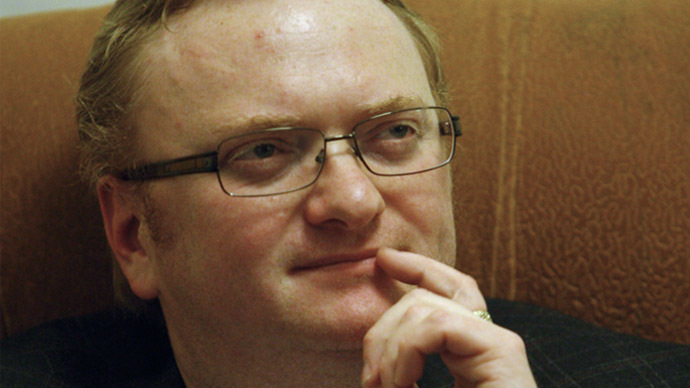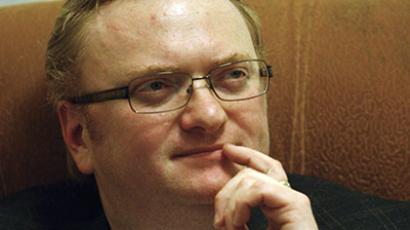Famous anti-gay Russian MP mulls homeless’ resettlement to rural areas

Legislators in Russia’s second largest city have suggested building special dormitories in remote villages to accommodate the country’s homeless population, estimated at 4 million.
The plans were disclosed by St Petersburg municipal deputy Vitaly Milonov, the Russian MP made famous for sponsoring the ban on gay propaganda and later discussing it personally with British actor and intellectual Stephen Fry.
The deputy from the ruling United Russia party told Izvestia daily that setting up a network of special centers would save the vagrants from the severe and often lethal winter cold.
Moving the homeless to the scarcely populated regions would further eliminate the threat of contagious diseases, the politician added.
Milonov also suggested putting the health ministry in charge of such centers so that they could monitor the health of the residents and provide regular vaccination against dangerous infections. He implied that the state would also provide those who agree to stay in such centers with work, but did not elaborate on its nature.
At the same time, the legislator emphasized that re-settlement to the new centers must be voluntary and that transients must be offered the alternative of temporary shelter within city limits.
Presently there are about two dozen homeless shelters in Russia’s largest cities of Moscow and St Petersburg, which have a population of 12 and 5 million people respectively. Each shelter can host no more than 60 people at a time.

The overall number of homeless people in Russia is difficult to estimate, although Izvestia quoted the unofficial figure of 4 million. Adding to the problem, last year courts all over the country ruled to evict over 20 thousand people without offering them alternative accommodation.
Sources in the Health Ministry and the State Duma said that though the initiative seemed interesting, it was too early to consider implementing the plan. Several MPs told Izvestia that they wanted to see a pilot project for a regional center in action so they could judge its advantages and drawbacks.
The politicians also suggested that the project’s implementation would demand very serious funding and the sources for this funding are not yet clear.
Upper House member Igor Chernyshev went even further, saying that he doubted the idea would be popular among the transients themselves. “The homeless are a specific culture that is present not only in our country, but also in richer nations. The homeless like their lifestyle, it is comfortable for them. I think that the state should not meddle in this process, instead we must simply form a different culture in the society,” the politician noted.
A representative of a charity that works with the homeless told reporters that very few of them would agree to live in special centers in rural regions.
“People go to the cities to find work. If you offer them a home this still would not solve the employment problem. The majority of the urban homeless are workers and they have nothing to do in the country,” said Maksim Yegorov from the Nochlezhka charity.















